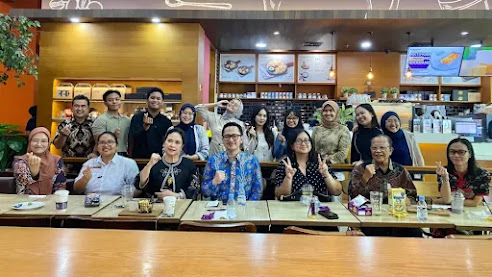International Relations Students at President Univ Host Blue Economy Pioneer Seminar
On Thursday, November 7, 2024, International Relations students from the Faculty of Social Sciences and Education at President University (Presuniv) organized the Blue Economy Pioneer Seminar. Held in the Charles Himawan Auditorium, Building A, 5th Floor, at Presuniv’s campus in Kota Jababeka, Cikarang, the seminar focused on “Optimization of Marine Resources and Poverty Alleviation in the Kali Adem Region by Implementing the SDGs in a Global Context.”
The seminar was arranged by students following a survey conducted with community members whose primary livelihoods depend on the sea, such as fishermen. The organizing team included Arief Rizki, Ilhami As’ad Nanda Perdana, and Patricia Gabriella Umbas from the 2019 cohort, Dwina Yabeztha Sinurat from 2020, as well as Andi Muhammad Nur Yasin Ar Thalib and Iqbal Fauzan Farah from 2021.
Moderated by Johanes Surya Utama Sede, a 2023 Environmental Engineering student, the Blue Economy Pioneer Seminar featured two guest speakers: Yoel M. Stefan, Head of the Transportation and Labor Subgroup in the Economic Unit for the Mayor of North Jakarta, and Abdur Rochman, ST, M.Ling., Head of the Law Enforcement and Supervision Section, North Jakarta Environmental Agency.
In her opening remarks, Dr. Jeanne Francoise, Head of the International Relations Program, highlighted the students’ commitment to the blue economy. “One of the key aspects of the blue economy is ensuring the welfare of those whose livelihoods rely on coastal and marine resources. This is why we have invited these distinguished speakers,” Jeanne said.
Yoel shared the government’s ongoing efforts to improve the lives of coastal communities. “We support small and medium-sized enterprises (SMEs) in coastal areas to process both natural resources and waste commonly found along the shore. One initiative includes processing mangrove fruit,” he explained. Abdur added that while many rely on the sea, the quality of marine life in Indonesian waters has been declining due to excessive pollution, both intentional and unintentional.
Yoel pointed out that one significant source of pollution is waste, particularly food waste that complicates waste processing. “When leftover food attaches to other waste, it hampers waste processing and contributes to the accumulation of trash at disposal sites, or in some cases, waste flows into the sea via rivers,” he explained.




Komentar
Posting Komentar